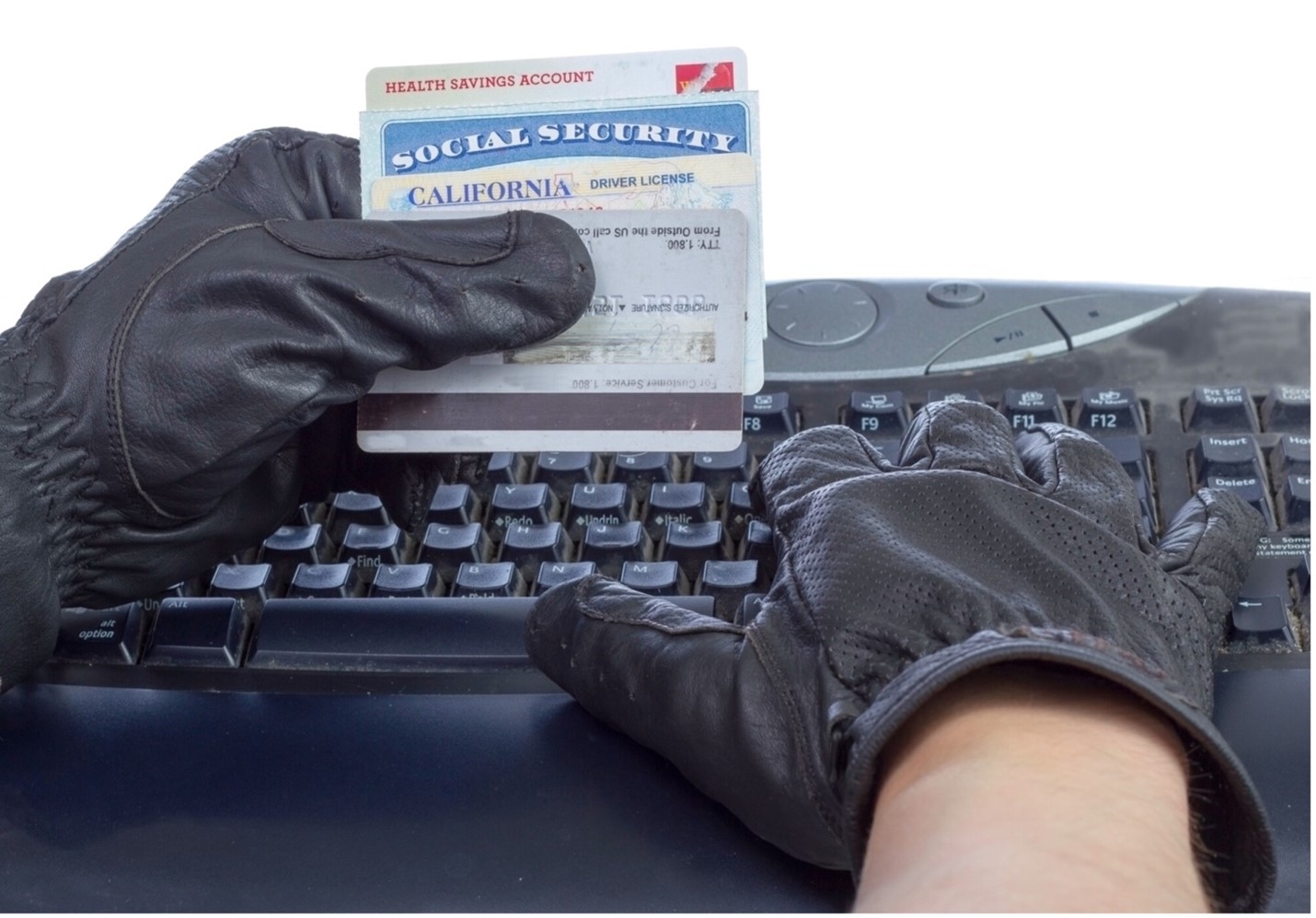Not a Member? Join us today!
It's easy to join! Apply for your lifetime Membership with iTHINK Financial in about 10 minutes.
MEET WITH US ON YOUR TIME
Schedule an in-branch or phone appointment at a time convenient for you.
Featured Products
You can turn to iTHINK Financial for the right solutions to all of your financial needs!
Protecting Your Money and Lifestyle from Identity Theft in 2022
By: iTHINK Financial | Dec 13, 2021

Identity theft affects one in every 20 Americans each year. If you're worried about online cyber threats and protecting your identity, we can help. With everything from banking to schooling being done online, it can be overwhelming to protect yourself against fraud.
Your money is too important to leave unprotected. From checking your credit report to what to watch for in texts and emails, we’ve rounded up everything you need to know about protecting your money and your identity.
Check Your Credit Report
One of the best ways to combat identity theft is to check your credit report regularly. Every year you're able to receive a free copy of your credit report online from the Federal Trade Commission. Your credit report contains a lot of helpful information about your payment history and more.
When you look at your credit report, you want to look for anything suspicious. If there have been multiple new accounts opened in a short period of time, this could be a red flag. If you aren't looking at your credit, this fraud may have gone unseen.
Your credit report can also show you if any fraudulent charges have come up. You may see bills or accounts you didn’t even know you had. Checking your credit will make sure you’re able to stay on top of anything that’s in your name.
Accounts are all too easy to open or hack online. This free tool is available to help you keep an eye on things. You can also sign up for credit alerts and potential theft from one of the three credit reporting agencies. These are TransUnion, Equifax, and Experian.
Use Creative Ideas for Passwords
One of the best ways to combat identity theft is by using unique passwords. Using your birthday for every account you have makes it easier for identity thieves to get into multiple accounts. Once your password is compromised, malicious people can use it for any account you have.
Think about if you use the same password for ten different accounts. If someone cracks one account, they know they can use your same password in several other places. This vulnerability makes it that much easier for fraud to happen.
To avoid identity theft through your passwords, consider a more unique password. Consider using a sentence to describe something unique to you. Add a capital letter, a character, and a number to the end, and you'll have a unique password that's hard to crack. Make sure to vary your password across all your online accounts.
While changing your password is a pain, it's a great practice. As much of a hassle as it is, consider how much worse it would be if you had to sort through identity theft. To keep your passwords fresh, consider setting a reminder for yourself to change them every month or every six to twelve weeks.
Take Caution on Social Media
While social media use can be harmless, fraud and identity theft happen. Just like browsing on the internet, there are always risks when you’re on social media. To minimize your risk, never share personal information. Even if it’s with someone you’re comfortable with, you should always take these conversations offline.
Don't give out this information if someone asks you for your phone number, credit card number, or social security number on social media. You can report someone on Facebook or Twitter, for example, if you notice any red flags. If something suspicious comes up, report it.
If another user on social media reaches out to you with a product for sale, be cautious here as well. Buying something through social media shouldn’t ever require your social security number. Only purchase from trusted sites.
Look at Your Financial and Credit Card Statements
It’s easy to ignore your credit card and bank statements when everything is done online. For many people, you get paid automatically through work, and your bills auto-debit. The days of balancing a checkbook are in the past.
Even when you use online banking, it can be helpful to comb through your statements each month. This habit will only take a few minutes, and it can help you stay on top of your finances.
When you get your credit card statement or bank statement in the mail or electronically, give it a quick look. Check to see that you're familiar with everything on the account. If you see anything suspicious, report it to your bank or credit card company.
We have fraud alerts and monitoring available for free with all our accounts and credit cards when you are a member of iTHINK Financial. If any activity looks suspicious, we notify you immediately. You can either authorize the charge or give us a call to let us know that this isn't you. You can rest easier knowing that this protection comes standard with all our services.
Don’t Trust Text Messages, Emails, or Calls
If you receive a suspicious call, email, or text, it isn't another bank or us. Financial institutions don't text you confidential or sensitive information. You'll never be asked questions about your bank account or credit card numbers over a text message.
If someone calls you to ask for personal information or say you won a prize, it's likely a scam. You should never give your account numbers or personal information over the phone. Crucial financial information will always be sent through the mail as multiple written notices with critical information.
While scam emails can look convincing, you always want to check the sending email address. Scam emails, texts, and calls are often sent from names that appear similar to legitimate companies. If you have any questions about emails, texts, or calls that you think are from us, give us a call.
Beware of Keyloggers
Keyloggers will place a pop-up or an ad on your internet browser that will look like the place you need to go to download something or open another document. They can mask these pop-ups to look just like the website you’re on.
Once you click on these pages, a hidden computer program is set up on your machine. This program will check any moves you make both on and offline. This information is then stored and delivered to an identity thief.
When this program takes hold of your computer, an identity thief can see your email, browser history, passwords, and more. The thief may share your personal information with a person or company without your knowledge.
To avoid this, don’t open anything from untrusted sites. Change your browser settings so that your computer won’t be able to install programs automatically. Never run or download a program from a pop-up. Only download software from trusted sites.
Freeze Your Credit After a Big Purchase
After you purchase a home, buy a car, or make a big purchase, it's a great time to freeze your credit. If you aren't opening new lines of credit or making any large purchases soon, freezing your credit can help.
When you have a credit freeze on your account, you can temporarily lift it if needed. You won’t be able to rent an apartment, apply for a job, or buy insurance, for example, when the credit freeze is in place.
You can freeze your credit with or without evidence of fraud. If you know you aren’t buying a home, a car, or opening any new lines of credit over the next few months or even a year, a freeze on your credit will help make sure you’re protected. During this time, an identity thief won’t be able to open a new account in your name.
Protecting Yourself From Identity Theft
Protecting yourself against identity theft is a must. Keeping an eye on your finances protects you, your family, and your money from theft. Your money and your assets are too important to be ignored. You need a financial partner that understands this.
We provide theft protection, account monitoring, and more to help make sure your money and your identity are protected against theft. Make an appointment here to learn more about our personal accounts, credit cards, mortgages, loans, and other financial services. We look forward to working with you and helping you reach your financial goals.
Upcoming Events
Check out the upcoming events happening at iTHINK Financial.
Quick Pay and Skip-A-Pay
Make a loan payment or skip your upcoming loan payment without logging in to Online Banking!





